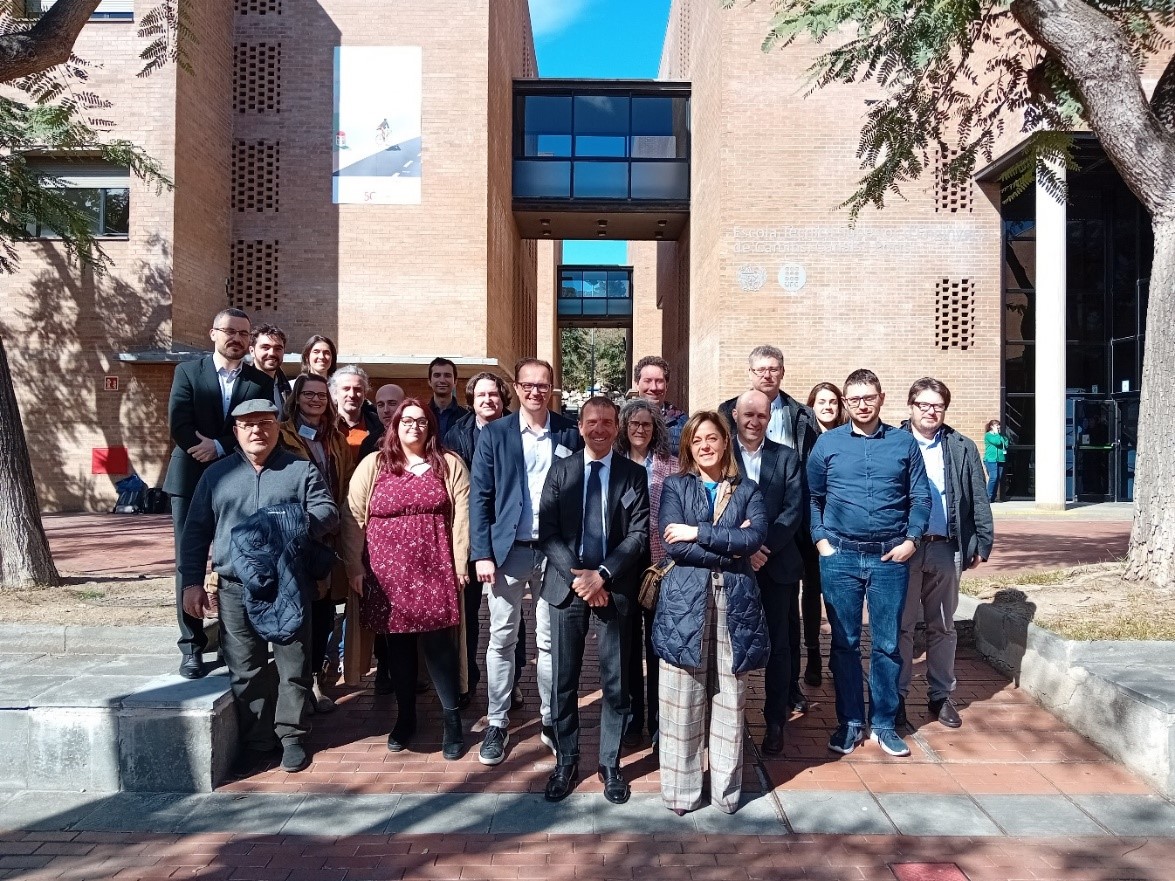The E-MED project, led by Universitat Politècnica de Catalunya (UPC), celebrated its kick-off meeting in Barcelona on the 28th of February at the Civil Engineering School (ETSECCPB). Miquel Estrada, full professor at UPC and project coordinator of E-MED, presented the project background, how it originated and its main objectives after welcoming the project officer and all 10 E-MED project partners. Overall, activities related to the exchange of experiences, communication, finance and reporting were carried out.
More specifically, the 4 work-package structure of the project was elaborated and discussed. WP1 will focus on planning solutions for improving energy efficiency & evidence-based decision making through the development of tools to redesign and operate existing bus transport networks. In addition to that, eco-driving tools to reduce energy consumption of e-buses will be explored. Different pilot tests will be carried out in Badalona, Bergamo, Lisbon, Maribor and Thessaloniki as well as an Ideation workshop to be held in Thessaloniki.
In the context of WP2, the use of artificial intelligence (AI) techniques will be exploited on the one hand to determine which bus route should be firstly electrified and whether electric bus operations are technically and economically feasible. On the other hand, a software developed at UPC on bus speed and regularity analysis will be further enhanced in E-MED to incorporate a new module aimed at tracking consumption patterns of vehicles to determine where, when and which vehicles incur in higher costs.
The procurement of new assets addressing energy efficiency and circular economy will be tackled in WP3. Activities related to the procurement of electric fleets will be based on the benchmark of current situation, interviews with PTO and bus manufacturers as well as draft and validation of guidelines and through workshops.
As for WP4 it focuses on EBRT system requirements, specifications, the definition of KPIs and the needs of the cities. During the meeting it was highlighted the importance of considering public operators and public authorities needs in the final E-MED solutions to be translated into policy documents/strategies/action plans, as well as considering the variable situation of the European energy market for assessing technologies, urban mobility services and innovation measures.
Finally, the Green Living Areas Mission initiative aimed at reducing negative climate impacts in local communities was presented through the implementation of two governance projects: Community4LivingAreas and Dialogue4LivingAreas. Both projects will offer maximum transferability and replicability of the results by the Community of Thematic Projects and engage targeted stakeholders.


